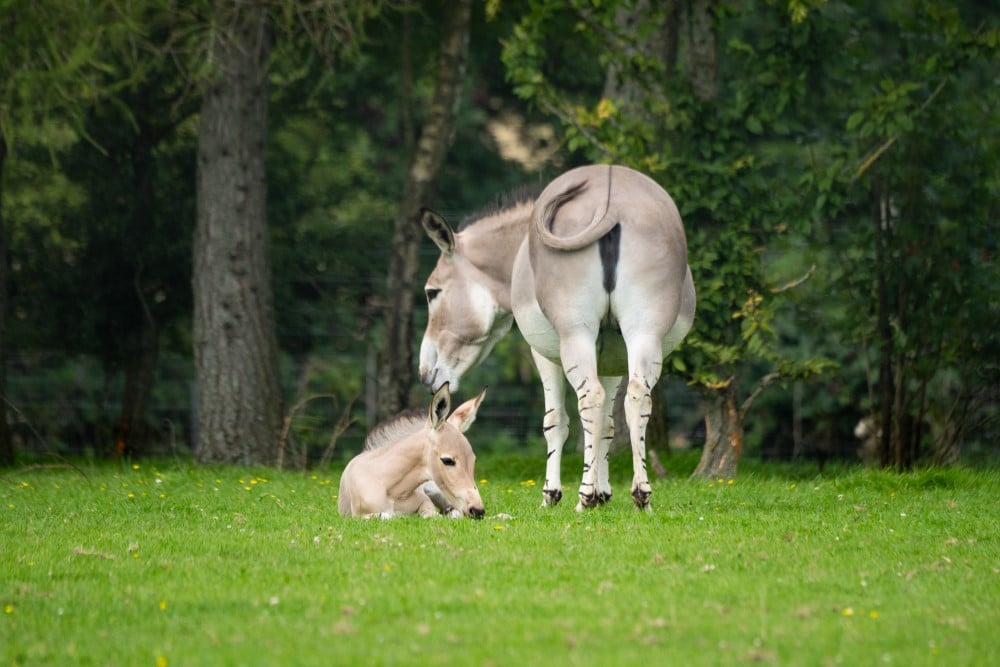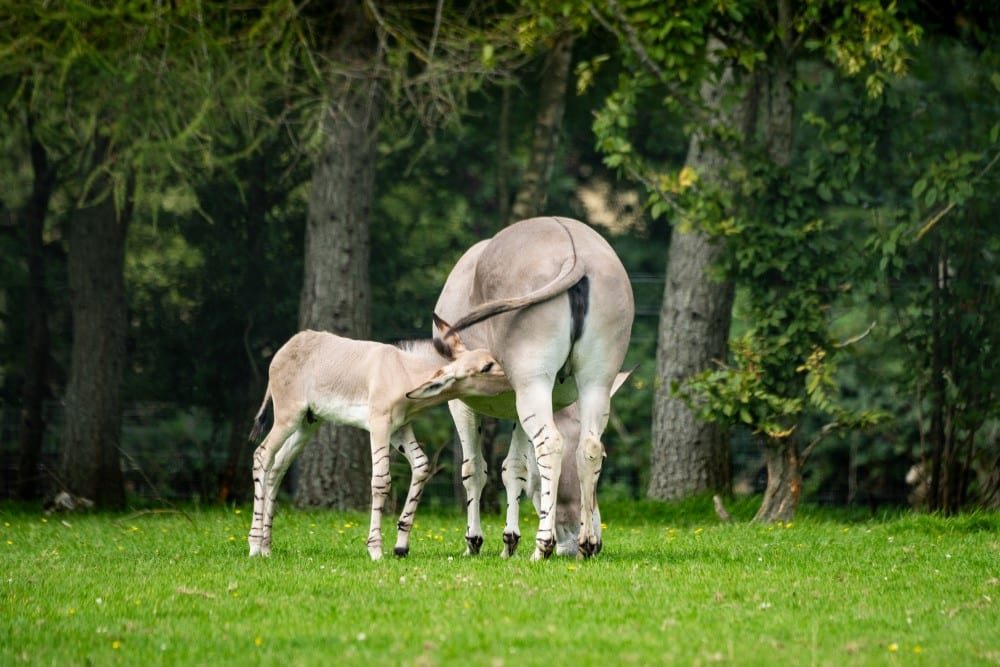The birth of one of the rarest mammals on the planet
August 28, 2023
August 28, 2023

The birth of one of the rarest mammals on the planet has thrilled keepers at Marwell Zoo this week, following the arrival of a Critically Endangered African wild ass.
With gangly legs and floppy ears it’s an addition that’s sure to be popular with guests too.
The African wild ass foal was born on Sunday 20 August and is particularly important because there are fewer than 200 left in the wild.
Native to Eritrea, Ethiopia and Somalia, African wild asses are preyed on by African lions and Ethiopian wolves.
They have also historically been hunted by humans for food. This has resulted in very low numbers of these animals surviving in the wild and the numbers continue to decline.
The new arrival at Marwell is reported to be doing well and can be seen with mother Nadifa in the paddock opposite Okapi Playground.
The father, Lars, has been moved into an enclosure next door to our banteng whilst Nadifa bonds with her new arrival.
Nadifa was born here in 2007 so the arrival of her foal is a continuation of Marwell’s commitment to conserving this Critically Endangered species, which we’ve had at Marwell since 1993.
This is Nadifa’s third foal and Lars has become a father for the fifth time. Keepers have confirmed the foal is male, but haven’t given it a name yet.
Darren Ives, Senior Animal Keeper, Hoofstock, said: “The team is very excited after a year-long wait for the foal to be born, and what makes it even more special is we haven’t had an African wild ass foal born at Marwell since 2020.
“The foal has already been seen doing ‘zoomies’ around the paddock and is looking nice and healthy.
“The foal has also caught the attention of the addax (who are also Critically Endangered) in the enclosure next to them as they have been seen watching each other though the fence.”
With so few of these animals left in the wild, it’s more important than ever to ensure there is a healthy, genetically diverse population of African wild asses in zoos as a back up for populations in the wild.
The new foal will play an important role in the future preservation of its species for future generations.
Did you know?

As well as the risk posed by hunters and predators, African wild asses face competition with livestock. This limits access to drinking water and food.
African wild asses are members of the horse family, Equidae, and are thought to be ancestors of domestic donkeys.
They have short, smooth grey coats that fade to white on their underbellies and large ears that provide an excellent sense of hearing used to avoid threats.
Often living near water sources, African wild asses have a black stripe along their spine, known as a dorsal stripe, a stiff upright mane and horizontal black stripes on their legs.
We’re currently working to raise £20,000 towards an extension to our snow leopard habitat. You can help us by donating.